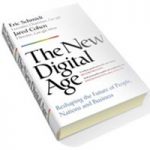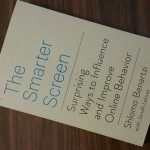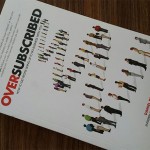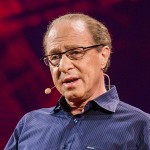 James Watson could be considered as the most controversial person among the Nobel Prize winners in the scientific fields.
James Watson could be considered as the most controversial person among the Nobel Prize winners in the scientific fields.
Many scientists or university faculties have said many biased or irrelevant opinions about many things they don’t know about and may Noam Chomsky represent this group very well.
However, the case for James Watson is a bit more complicated as he states opinions which are considered as biased, sexist, and racist, and at the same time, all of his statements are directly related to his particular field of study.
The most popular quote from him that put his last years of living in the dark was about the intelligence difference between black people and the other races.
A similar statement about inherent gender differences made him more hated and left him in a situation that he mentions as “an unperson.”
These are not the only controversial ideas stated by James Watson. His statements about women’s choice on gay abortion stirred so many controversies, and even Richard Dawkins was pushed to write a letter to independent defending Wason and telling that Watson’s ideas are misrepresented by the Sunday Telegraph.
Although Dawkins put his name and fame in defending Watson, you feel that he is angry from Watson deep inside (Source):
I also remember being a little taken aback by some of the politically incorrect statements he was making. (I don’t remember specifics.) It wasn’t so bad that I felt compelled to walk out of there; I was just surprised that someone so intelligent would just say whatever came to mind with no filter whatsoever.
Despite all the above facts and controversies, still, his autobiography is one the most inspiring autobiographies you could find in the market.
Avoid boring people, is a collection of really insightful lessons from a life in science, as it is subtitled on the cover.
The name of the book is inspired by the following passage:
Never make dull speeches that easily could be delivered by someone else. Predictable words naturally compel audiences to tune out and lock their pocketbooks. Just as tedious is bringing small groups of busy people together for committee meetings with no opportunity for them to offer real input… Reading the same papers and magazines as everyone else around you is not likely to make you an interesting dinner guest, let alone alter your consciousness.
The most interesting point about the book is its unique structure.
Every single chapter is followed by a list of “remembered lessons” that an impatient reader could enjoy reading them even without the reading the whole biography.
Although the book can be an excellent source of extracting insightful quotations, I do recommend you to read it word by word and sip by sip to enjoy this unusual biography.
There are just a few sentences that I want to quote here. They caught my attention, as I believe they are describing the motivation behind his many controversial statements:
ught my attention, as I believe they are describing the motivation behind his many controversial statements:
Scientists will necessarily exaggerate but are ethically obliged to society to exaggerate responsibly. In writing my textbooks I realized that emphasizing exceptions to simple truths was counterproductive and that use of qualifying terms such as probably or possibly was not the way to get ideas across initially.
Whether you like him or hate him, he is not boring at all, and I’m sure that this makes his life satisfactory from his point of view.





